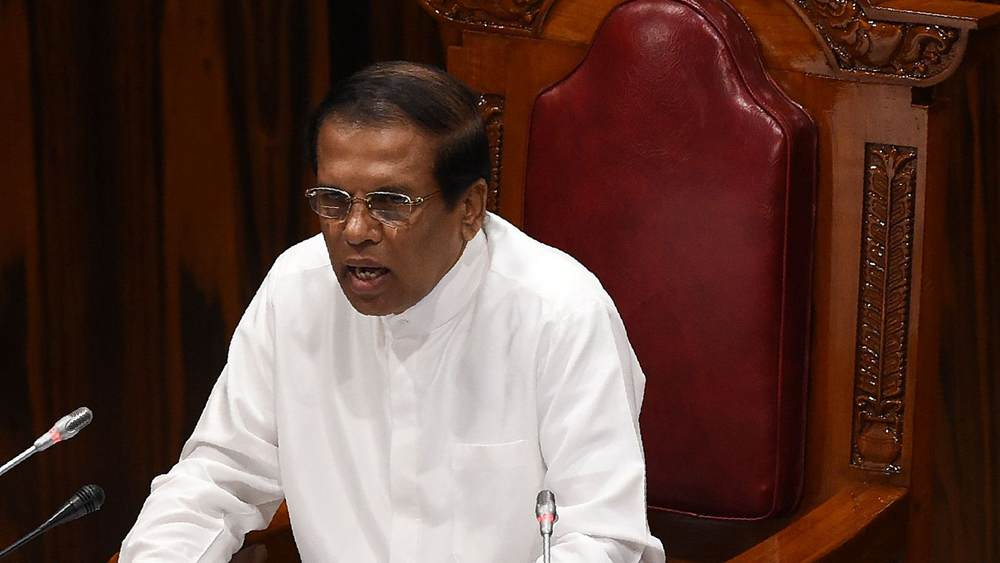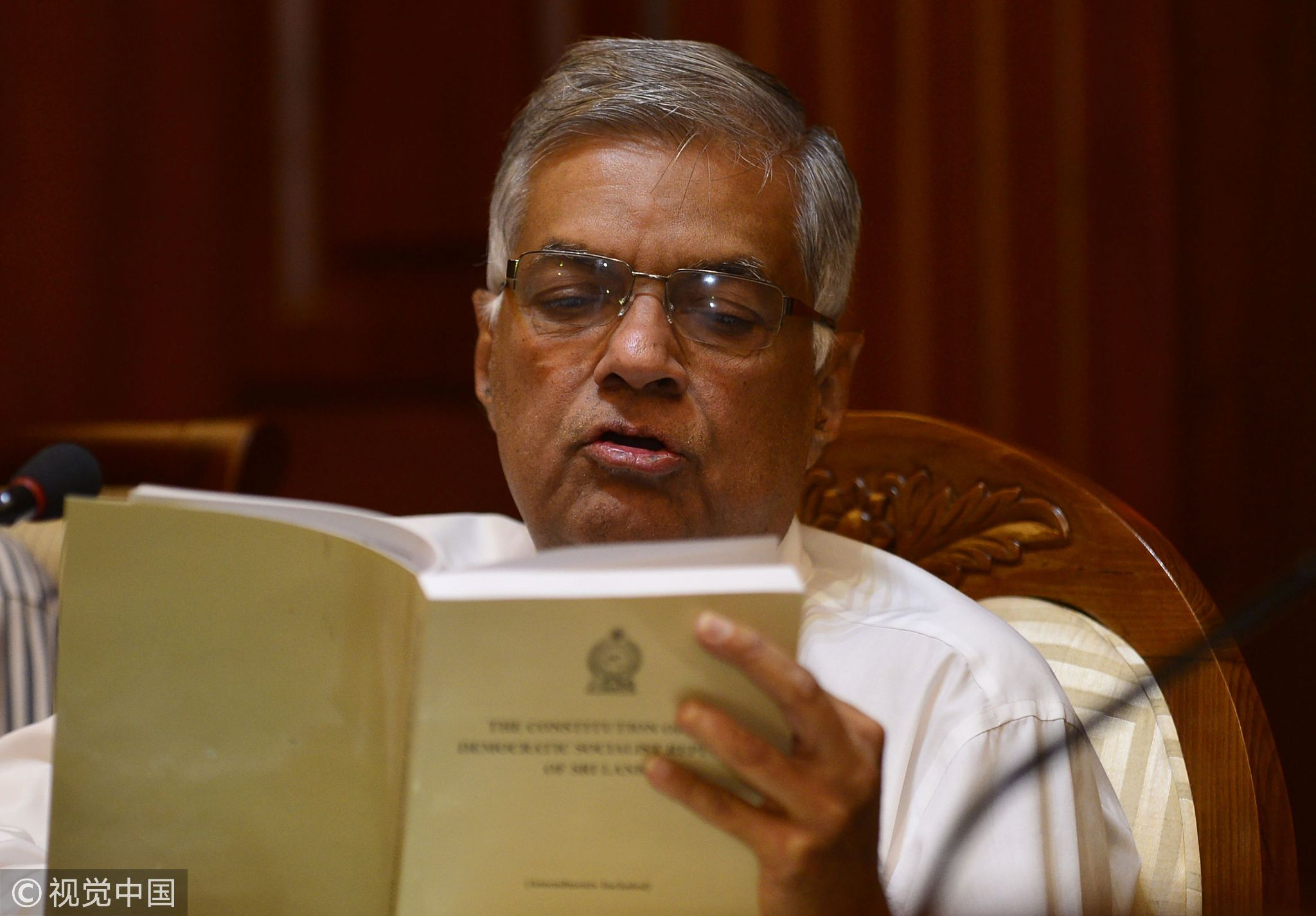
Politics
17:44, 01-Nov-2018
Sri Lankan president to reconvene parliament to solve political crisis
Updated
16:42, 04-Nov-2018
CGTN

Sri Lanka's President Maithripala Sirisena plans to call a session of parliament on Monday, the new prime minister said, a move that could help resolve a political crisis after the abrupt dismissal of his predecessor.
Sirisena named Mahinda Rajapaksa as prime minister last week after sacking the coalition government of Ranil Wickremesinghe, prompting protests and a demand for parliament to be called, to allow lawmakers to choose their leader.
The return of Rajapaksa, a former president who crushed a decades-old Tamil insurgency, has stoked fears of fresh political and ethnic division in the island nation of 21 million mostly Sinhalese Buddhists, with Tamil and Muslim minorities.
Wickremesinghe has called his removal unconstitutional and has demanded he be allowed to prove his parliamentary majority.

Sri Lanka's ousted prime minister Ranil Wickremesinghe reads a copy of the Sri Lankan constitution at a press conference in Colombo, Sri Lanka, October 29, 2018. /VCG Photo
Sri Lanka's ousted prime minister Ranil Wickremesinghe reads a copy of the Sri Lankan constitution at a press conference in Colombo, Sri Lanka, October 29, 2018. /VCG Photo
"The president has decided to reconvene parliament on November 5," Rajapaksa said during a meeting at the prime minister's office on Thursday.
There was no immediate word from Sirisena's office on convening parliament.
Earlier, Sirisena had prorogued parliament until November 16, but political parties and foreign powers led by the US and the EU urged an early session to resolve the crisis.
Political parties and diplomats say continuing uncertainty could fuel attempts by claimants to lure lawmakers with money and ministerial positions.
Parliament Speaker Karu Jayasuriya, who has also warned of unrest in the streets if parliament was not called quickly, met Sirisena on Wednesday to persuade him to call an early session.
Since Sri Lanka was plunged into political crisis, its rupee currency has hit record lows, compounded by worries over a slowing economy.
"The political turmoil is putting downward pressure on the rupee," Capital Economics said in a note. "If the currency continues to weaken, the central bank may be forced to hike interest rates, which would further weigh on growth prospects."
Sri Lanka's foreign currency debt, which is equivalent to about half its total debt, also makes it vulnerable to sudden currency falls, it added.
(Top image: Sri Lankan President Maithripala Sirisena addressing the parliament, Colombo, Sri Lanka, May 8, 2018. /VCG Photo)
5181km
Source(s): Reuters

SITEMAP
Copyright © 2018 CGTN. Beijing ICP prepared NO.16065310-3
Copyright © 2018 CGTN. Beijing ICP prepared NO.16065310-3